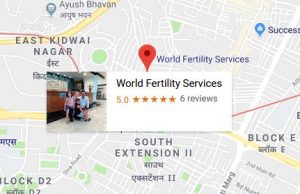In Vitro Fertilization, or IVF, stands as a remarkable triumph in modern medicine. This revolutionary fertility treatment has opened doors for millions, helping couples and individuals finally realize their heartfelt dream of having children. For those on the challenging path of infertility, IVF offers a beacon of hope, turning long-held desires into tangible possibilities.
Yet, like any powerful medical procedure, IVF involves a journey with both significant advantages and considerable drawbacks. Understanding these points fully helps you make the most informed decision. Let’s explore the critical benefits alongside the potential hurdles of IVF, empowering your family-building choices.
The Promise of IVF: Key Advantages

IVF Key Advantages
Increased Chances of Conception
IVF directly tackles many reasons why getting pregnant naturally can be tough. It offers a viable path for people who have struggled for years. For many, it’s the most effective treatment available, especially when other options haven’t worked out. This method often boosts the odds of achieving a successful pregnancy.
Overcoming Specific Infertility Factors
IVF can help with a wide range of issues. It bypasses blocked fallopian tubes, which stop eggs from meeting sperm. For male factor infertility, such as low sperm count or poor movement, doctors can select the best sperm. IVF also aids those with ovulation disorders and endometriosis, allowing for successful fertilization outside the body.
High Success Rates for Certain Age Groups
Success rates for IVF vary, but they are often higher for younger women. For instance, women under 35 may see live birth rates around 50% or even more per IVF cycle. These numbers tend to decrease with age, yet IVF still provides a chance when natural conception is unlikely. Your doctor can give you specific data based on your age and health.
Greater Control and Monitoring
The IVF process is highly structured, giving doctors precise control. Every step, from egg growth to embryo transfer, is carefully watched. This close monitoring allows for adjustments and interventions as needed. It helps ensure the best possible conditions for conception.
Embryo Selection and Genetic Screening
Preimplantation Genetic Testing (PGT) is a major benefit of IVF. This testing allows doctors to check embryos for genetic abnormalities before transfer. Choosing healthy embryos can lead to healthier pregnancies. It also reduces the risk of passing on certain inherited diseases to your child.
Choice of Donor Gametes
IVF provides options for individuals or couples who cannot use their own genetic material. You can choose to use donor eggs, donor sperm, or even donor embryos. This flexibility helps many diverse families achieve parenthood. It expands the possibilities when biological parentage isn’t feasible.
Building a Family Through Multiple Pregnancies
Sometimes, more than one embryo is transferred during an IVF cycle. This can increase the chance of getting pregnant in that specific cycle. While it boosts the odds, it’s also important to consider the implications of multiple births. Your care team will discuss this balance with you.
Storing Embryos for Future Use
A significant advantage of IVF is the ability to freeze extra embryos, a process called cryopreservation. These stored embryos can be used for future attempts at pregnancy. This means you won’t have to go through the full IVF cycle again for each child. It offers flexibility for growing your family over time.
The Challenges of IVF: Understanding the Cons

Challenges of IVF
Emotional and Psychological Toll
The IVF journey often feels like an intense emotional rollercoaster. Couples ride waves of soaring hope, followed by the crushing weight of disappointment if a cycle fails. This process tests the strongest bonds and can feel isolating. It demands immense emotional strength from everyone involved.
Stress and Anxiety of the Process
Daily injections are common, alongside frequent clinic visits for monitoring. These appointments can become disruptive to daily life. The constant pressure to conceive, coupled with the anticipation of results, creates significant stress and anxiety. It’s a demanding routine, physically and mentally.
Dealing with Treatment Failure
Unsuccessful IVF cycles bring profound heartache. The emotional impact of a failed attempt can be devastating, leading to grief and frustration. Many experts say seeking counseling can make a big difference during these tough times. It’s crucial to find healthy ways to cope with this emotional burden.
Physical Demands and Potential Side Effects
Undergoing IVF treatment involves several physical steps. These procedures carry some potential medical risks and side effects. Knowing what to expect helps you prepare for these aspects of the journey. Your medical team will guide you through each stage.
Ovarian Hyperstimulation Syndrome (OHSS)
One potential side effect is Ovarian Hyperstimulation Syndrome, or OHSS. This happens when the ovaries overreact to fertility medications, becoming swollen and painful. Symptoms can range from mild bloating and nausea to more severe cases needing medical care. Doctors carefully monitor for OHSS to manage it promptly.
Risks Associated with Egg Retrieval and Embryo Transfer
Egg retrieval is a minor surgical procedure where eggs are taken from the ovaries. Risks are small but can include bleeding, infection, or damage to nearby organs. Embryo transfer is usually painless, but there’s a tiny risk of cramping or spotting afterward. Your clinic will explain all safety measures.
Financial Burden of Treatment
For many individuals and couples, IVF represents a substantial financial investment. The costs can quickly add up, making it a barrier for some. It’s important to understand the full scope of potential expenses before starting treatment. Plan ahead for these significant fees.
Cost of Procedures and Medications
The price of IVF varies widely depending on your location, the clinic you choose, and your specific treatment plan. Medications alone can be very expensive. Some insurance plans offer coverage for fertility treatments, which can greatly reduce out-of-pocket costs. Always check your policy’s details.
Need for Multiple Cycles
Often, a single IVF cycle is not enough to achieve pregnancy. Many people need repeated cycles, which can significantly increase the overall financial strain. Each additional cycle means more costs for procedures, medications, and monitoring. This can quickly drain savings and cause financial stress.
Ethical and Societal Considerations
IVF treatments often raise broader questions about life, family, and medical boundaries. These discussions touch on important moral and societal issues. Understanding these points helps you navigate your personal choices within a wider context.
Multiple Birth Risks
Transferring more than one embryo can lead to multiple pregnancies, like twins or triplets. While exciting, multiple births carry increased risks for both mothers and babies. Studies show multiple births from IVF increase prematurity risks by over 50%. Babies born early may face health problems or longer hospital stays.
Embryo Disposition Decisions
After an IVF cycle, there might be unused embryos. Deciding what to do with these embryos can be a very personal and emotional choice. Options often include donating them for research, donating them to other couples, or discarding them. These decisions involve deep ethical and personal considerations for families.
Who is a Good Candidate for IVF?

Who is a Good Candidate for IVF
Understanding if IVF might be a suitable option for you is the first step. A fertility specialist can assess your unique situation. They will consider your medical history and test results to guide you. IVF offers a solution for many different fertility challenges.
Common Infertility Diagnoses Benefiting from IVF
IVF is often a good choice for people with specific diagnoses. This includes blocked fallopian tubes, which prevent natural conception. It also helps with severe male factor infertility, where sperm quality or quantity is low. Unexplained infertility, when no clear cause is found, can also benefit from IVF. People with ovulation disorders, like PCOS, also find success.
Age and Ovarian Reserve Considerations
A woman’s age greatly impacts IVF success rates. Younger women generally have higher chances due to better egg quality and quantity. Ovarian reserve, which measures the number of eggs remaining, is also a key factor. Your doctor will perform tests to check your ovarian reserve. These factors help predict the likely outcome of IVF treatment.
Making an Informed Decision: Actionable Tips

Actionable Tips
Deciding on IVF is a big step. Having the right information and support can make the process smoother. Here are some practical steps to help you on your journey. These tips will empower you to make choices that are best for your family.
Researching Clinics and Success Rates
Take time to research reputable fertility clinics. Look at their reported success rates, which often vary by age group and specific conditions. Compare clinic policies, costs, and patient reviews. Finding a clinic that fits your needs and values is very important.
Consulting with Fertility Specialists
A thorough medical consultation with a fertility specialist is vital. Prepare a list of questions about the IVF process, potential risks, and expected success rates. Ask about different treatment protocols and financial options. A good consultation builds trust and clears doubts, helping you feel confident in your choices.
Building a Support System
The IVF journey can be tough, so building a strong support system is essential. Lean on your partner, trusted family members, or close friends. Joining support groups can also be incredibly helpful. Sharing experiences with others who understand can ease the emotional burden and provide valuable insights.
Conclusion: Weighing the Options for Your Family Journey
IVF treatment offers a lifeline for many hoping to have children. It presents significant advantages, like higher conception chances and greater control over the process. Yet, it also comes with notable challenges, including emotional stress, physical demands, and financial burdens. Weighing these pros and cons carefully is crucial for anyone considering this path.
IVF is a powerful tool in the fertility landscape, offering real hope. However, it requires careful consideration of all factors. You must think about the medical details, your emotional well-being, and the financial commitment. By doing so, you can navigate your unique journey towards building the family you dream of.
Table of Contents



 WhatsApp us
WhatsApp us